School of Health and Kinesiology opposes proposed mascot, fears it could lead to interscholastic sports
 Amanda Blake Managing Editor
Amanda Blake Managing Editor
During the Feb. 13 Faculty Senate meeting, Robert Benge, dean of the School of Health and Kinesiology, asked senators to delay a vote on Student Association's (SA) proposed bear mascot so he and his employees could submit written feedback, according to a previous Accent article. After the meeting, Benge and Judy Sloane, a professor at the school, wrote a letter detailing their department’s stance against the creation of a mascot for Southern Adventist University.
They submitted the letter to Bob Young, vice president for Academic Administration, who told the Accent that the letter was shared with the Pres-
ident’s Cabinet, deans and chairs and vice presidents.
Rachel Williams-Smith, dean of the School of Journalism and Communication, said the deans and chairs heard Benge’s concerns during a meeting, but, based on her recollection, no one gave any comments in response.
In an interview with the Accent, Benge described the School of Health and Kinesiology’s standpoint. He clarified that the school has never considered the duck to be its official mascot, nor did the thought of the bear replacing the duck cross his or his employees’ minds while voicing their opinions.
The duck has nothing to do with the school’s stance against the proposed bear mascot, he said.
The letter he and Sloane wrote contained three points, Benge said. First, of the nine full-time faculty in the School of Health and Kinesiology, not one approves of the mascot. Second, the implementation of a mascot does not make sense for Southern’s campus.
“Mascots are associated with interscholastic sports teams,” Benge said. “We don’t play interscholastic sports here, so we didn’t see the relevance of it.”
Third, the faculty do not believe a mascot properly conveys their perception of the school.
“We consider the School of Health and Kinesiology an aca-
Village Market hosts Wellness Fair for first time since COVID-19
Alana Crosby
Editor-in-Chief
On March 16, the Village Market hosted the first Wellness Fair since before the COVID-19 pandemic. The event was organized by Lisa Reynolds, the Village Market vitamin department supervisor, as a way to reach the community and spread awareness about natural options offered at the store.

The event featured product representatives for sev -
eral brands sold at the Village Market, along with the chance to win gift baskets and try free samples.
Reynolds wanted to hold the fair for several reasons. In an interview with the Accent, she said during the COVID-19 pandemic, grocery stores were considered heroes, often continuing to work while a lot of businesses closed down for lack
of workers. However, due to inflation, Reynolds said, rising prices have decreased grocery store popularity.
“[Grocery store employees] were here literally risking our lives, and we were here, especially wellness department people,” Reynolds said. “But all of a sudden now we're the bad guys because prices are higher. So, I thought it would be … a
good way to remind people that we're an asset to the community. ” Reynolds said the Wellness Fair gave community residents an opportunity to try new products they would not usually try, especially considering inflation.
“I think we're in the highest inflation in 45 years, and people are hurting,” Reynolds said. “And I reason that if I have the ability
to get free products in people's hands, it would bless them. … If inflation is really high, you're not likely to maybe try something you've never tried before. So, getting either the samples or the full-size free product in their hand gives them the ability to try something new that they might have been afraid to.”
According to Reynolds, the
Counseling Center sees increase in attendance over the past two years
Emily Morgan Staff Writer
The number of students who use counseling services has increased over the past two years, and so has the symptom severity, according to Amy Ortiz Moretta, counseling services coordinator.
Moretta stated in an email to the Accent that this increase can be attributed to multiple factors such as COVID-19, national trends and a strong decrease in social stigma toward mental wellness, as well as many other personal struggles.
The Counseling Center has conducted 542 counseling sessions since Jan. 9, according to Moretta. In addition to these sessions, Moretta explained, counseling services also include classroom presentations, along with collaborations with campus resources and mental health wellness events like Healthy Minds Quality Enhancement Project (QEP).
The Counseling Center also has an Instagram account that the staff uses to reach students, with counselors on call at all times to respond to stu-
dent crises. Student Support Services also launched in-dorm counseling services during the Winter 2021 semester to give students more options for counseling, according to a previous Accent article.
“The stigma attached to counseling is not as powerful; it is now seen as an extension of wellness,” Moretta said. “Our students are juggling many overwhelming challenges. The counselors help process loss, death, divorce, anxiety, depression, break-ups, questions of identity, overthinking and lack of motivation. These are just a few of the topics we help the students process in counseling.”
Regarding the effect of COVID19 on the number of students who use counseling services, Moretta said, “Illness and isolation have impacted the way we relate to others. We are still learning about the long-term effects of COVID-19, and the social, emotional, psychological and physical effects have yet to be determined.”
Moretta said going forward, the department will continue to collaborate with the Healthy Minds QEP to create educational and entertaining programs for the students.
“We also collaborate with the University Health Center, Disability Support Services, Ministry and Mission department and Academic Support department to ensure that students' emotional, educational, physical and spiritual needs are met,” she said.
According to the Counseling Services website, the cost of its services are included in tuition. More information about the Counseling Center can be found at https:// www.southern.edu/administration/student-success/counseling. To set up an appointment with the Counseling Center, call 423 236-2782; email Lauree Fogg, the counseling center office manager at ljfogg@southern.edu; or go to the center’s location on the third floor of the Bietz Center for Student Life.

The student voice since 1926 March 22. 2023 Collegedale, Tennessee Vol. 78 Issue 19 Don't let influencers build your wardrobe: Beware of tasteless TikTok trends Lifestyle | 7 Coffee: A cautionary tale of the drug hiding in your drink Mental Health | 5 Getting our ducks in a row: A vindication of the duck as Southern's mascot Opinion | 6 Facing Temptation? Remember your kids Religion | 6 Southern Accent
See MASCOT UPDATE on page 3
Emily Turk (left) and Lisa Reynolds (right) pose for a photo during the Wellness Fair on March 16. (Photo courtesy of source )
"The faculty do not believe a mascot properly conveys their perception of the school."
Wednesday, Sept. 28, 2022 (Photo by: Ron Cabacungan)
See WELLNESS FAIR on page 2
Signage outside of the counseling center in Beitz.
(Photo by: Mila Bales)
WELLNESS FAIR
continued from page 1
fair was also a way to bring the community together and celebrate wellness. In an email to the Accent, Village Market Manager Jackie Rose wrote that the community always benefits from events like this, which include sampling, prizes, product information and discounts.
“We are planning to have more of these events with demos and deep discounts now that COVID is lessened,” Rose wrote. “Our only other hindrance to having events is lack of labor, both regular and student labor. Student labor picked up this year, but we are still down on regular full-time/ part-time help. We hope to find help and continue as soon as possible with another event.”
One of Reynold’s favorite moments from the event began
when she attended a crafting event at the Collegedale Public Library and handed out flyers advertising the Wellness Fair. While there, she met a new

community member who had just moved to the area and was looking for a way to connect and make new friends. She ended up going to the Wellness
Fair, where Reynolds was able to show her around.
“She was so excited,” Reynolds said. “She didn't know there was a vegetarian store in town; and I left my event to walk down the sidewalk and show her where CrumbleBerry Market is and show her the [book] store, let her go play in there. On our way, I said, ‘By the way, are you in the ladies Bible study here in town?’ And she said ‘no’ but that she was looking for one. I said, ‘Well, I know how to get you hooked up.”
Reynolds said she gave away 40 free gift baskets to those who won a drawing. The gift baskets were a courtesy from different vendors and brokers.

According to Reynolds, she has noticed a heightened interest in natural options since the pandemic.
“There is definitely a place for pharmaceuticals, but there's
also a place for supplementing,” Reynolds said. “We [are] 1,000s of years away from creation, and we're not eating right off the farm. Soils are depleted, pollution is high. There's a lot of environmental threats.”
Community member Nan Williams said she has been going to the Village Market for 40 years and was happy to receive some samples that helped her with a recent cold, and also enjoyed seeing new community members visiting the store.
“I was really glad I got those samples, and it was nice,” Williams said. “I ran into somebody I had just met. We told her about [the fair]. She showed up, and I ran into her there. ... She was looking around at stuff and trying samples like I was, and she was quite excited. So that was really good to see.”
Village Market to implement biodegradable plastic bags
Alana Crosby Editor-in-Chief
The Village Market will transition from regular plastic to biodegradable plastic bags next year, which could raise prices for some deli items, according to Village Market Manager Jackie Rose.

The decision to switch occurred shortly after students raised concerns about environmental consciousness on campus.
In a previous Accent article covering the topic, Rose stated he had yet to find a paper bag that would accom-
modate the size of the deli to-go boxes. At the time, Rose mentioned paper bags as a definite possibility he would look into. However, the added cost would be unavoidable, he emphasized.
“I am working with our current supplier to transition from our regular plastic bags to biodegradable,” Rose wrote in an email to the Accent.
“This move will cost the Village Market approximately $6,000 more per year. We are not
going to charge for the bag at the register but are raising a couple of our best sellers margins to pay for the bags.”
According to the email, the biodegradable bags break down like tree leaves. As the Village Market already has a year’s worth of regular plastic bags printed with the store’s logo, Rose explained, the new bags may not take effect until January 2024.
Regarding student concern about the amount of Styro-
foam products used on campus, Rose wrote that switching to a more recyclable option at the deli would pose a much greater cost and subsequently raise meal prices significantly.
“Since it is under the Deli budget, we would have to raise the price of the meal and not something else in the store,” Rose wrote. “Maybe they will come down in the future on the price of biodegradable three compartment trays where it would be feasible.”
School of Social Work gets involved in National Social Work Month
Morgan Garcia Contributor
Editor’s Note: This commentary was written by a social work student in recognition of National Social Work Month. Morgan Garcia serves as the president of Phi Alpha, the Social Work Honor Society and as the social vice president of the social work club on campus.
Each March, the National Association of Social Workers (NASW) celebrates National Social Work Month. The theme this year is “Social Work Breaks Barriers.” This theme focuses on continuing to fight the barriers that prevent people from thriving and finding new ways to encourage social justice. It acknowledges that social workers break barriers no matter the population or setting in which they practice. The purpose of National Social Work Month is to raise awareness for the efforts of social workers and to highlight the work that remains to be accomplished.
Southern’s School of Social Work observes this annual event by creating opportunities for action, acknowledging the rationale for the month and by providing resources to further educate students.
Beyond on-campus visual reminders and interdepartmental outreach to both social work students and alumni, the School of Social Work will participate in Social Work Month by sponsoring a networking fair on March 23 at the Family Justice Center in Chattanooga. This event will allow Southern students to connect with local professionals and community resources and to discover experiences and opportunities.

Additionally, the School of Social Work is hosting a “Social Work Day
Southern Accent
The Accent encourages readers to write articles and voice their opinions. However, the views expressed do not necessarily reflect the opinions of the Accent, Southern Adventist University or the Seventh-day Adventist Church. For any questions, comments and article submission information, email the editor at acrosby@southern.edu
For all advertising inquiries, email studentadmgr@southern.edu.
On the Hill” watch party on March 29. This virtual event provides social work programs across the state opportunities to engage with legislators and see policy work in action in Tennessee. Over 500 students and practitioners attend annually, according to the NASW Tennessee chapter website. Due to the nature of social work, both students and faculty are continuous learners who share knowledge freely and enthusiastically.
Social workers strive to continually learn from those they interact with and acknowledge that clients are the experts in their own experi-
ences. In other words, social workers do not enter a problem with an arsenal of solutions that are thrust upon a client or community. Instead, social workers empower individuals to identify their personal strengths and resiliencies, helping people to discover their power to enact change.
Southern students, regardless of their major, can also contribute to breaking barriers. Here are just a few ways:
• Become involved in community service
• Attend events that educate about resources and pro-
grams that assist people.
• Stay up-to-date on current events
• Address difficult or uncomfortable situations with family and friends
• Work to care for their own bodies and minds
Through these and other actions, students can find empowerment and strength in themselves, and others, to break the barriers around them.
Contributor’s Note: When Jesus commanded us to feed the hungry, give drink to the thirsty, shelter the stranger, clothe the naked, tend to the sick and visit the incarcerated, He did not mean for us to choose which of these people we feel comfortable with, to choose those who do not challenge our positions and morals. Unequivocally, He called us to care for all members of our
community. The field of social work teaches that social justice is not exclusive to those who are considered deserving but to all who face the barriers that are ingrained in our society.
After I complete my education, I hope to work as a macro social worker. This means that while I will always strive to improve the wellbeing of individuals, my focus will be on policies and systems that impact those individuals. My goal is to work with policies that recognize the impact of factors such as mental health, the social environment on criminal behavior or policies that work to restore harmful physical environments that currently cause harm. Wherever I work, I know that the School of Social Work has prepared me to be a successful and thorough advocate.
Violence
Editor-in-Chief
Alana Crosby
Managing Editor Amanda Blake
News Editor Matthew Orquia
Collegedale News Editor Elsie Pak
Social Media Manager Anna Estep
Lifestyle Editor Elise Deschamps
Photo Editor Adam De Lisser
Religion Editor Madison Wilcox
Opinion Editor Christina Cannon
Sports Editor Jacob Nevis
Copy Editors
Stefanie Green
Layout Designers
Anton Kannenberg
Hannah Mortenson
Web Manager
Nickolas Nieves
Circulation Manager Norelie Cabrera
Reporters
Génesis Ventura
Hannah Johnson
Photographers
Ron Cabacungan
Mila Bales
Preston Waters
Staff Sponsor Alva James-Johnson
NEWS If you would like to be a contributor, contact Alana Crosby at acrosby@southern.edu 2 | Wednesday, March 22. 2023
Susanna McCurdy pictured with a few of the 40 gift baskets given away in a drawing. (Photo courtesy of source )
(Left) Flyer for Social Work Networking Event. (Right) Mike Narita, Ilsia Bonilla and Morgan Garcia help run the annual Domestic
Awareness booth. (Photo courtesy of source )
The Village Market (Photo by: Mila Bales)
continued from page 1
demic school, a school of science: exercise science, human performance, health and wellness,” Benge said. “We like the columns brand because it signifies … we’re about academia.”
Isaac James, director of Marketing and University Relations, wrote in an email to the Accent that he is not knowledgeable of SA’s specific plans regarding a bear logo, but the official columns logo is not going away.
“I can share that the university logo remains the official way Southern is identified to audiences, and there are no plans from my office to change that,” he wrote.
Although Benge is aware that SA is not promoting interscholastic sports by proposing a mascot — as stated by Kenneth Bautista, senior management major and SA
president, to the Accent and Faculty Senate — he called the mascot an “insidious” way for future SA leadership to introduce competition against other schools.
Benge further explained the faculty’s view on interscholastic sports. If Southern created sports teams to play other schools, that program would inevitably take resources away from intramurals. The faculty has worked hard to establish a culture promoting physical activity on campus, Benge said, and the school has seen noticeable results.
BestColleges.com ranked Southern in its top 20 colleges with the best intramural sports programs in 2013. The National Collegiate Fitness Index ranked Southern number one in the private university category in a national study of collegiate fitness in 2016. Articles on both accomplishments can be seen on the wall in the Hulsey Wellness Center.
Faculty in the School of Health and Kinesiology fear losing this culture to interscholastic sports, Benge said. He added that there are ethical dilemmas that arise from competing against other schools.
Benge met with the Senate Mascot Committee, which consists of Bautista, junior biology major Wilson Hannawi and junior accounting major Anna Mihaescu, last month to discuss SA’s mascot proposal. Benge said he will not fight the mascot if it is approved.
“I wouldn't turn ugly against the SA in any way, shape or form,” he said. “You know, I hope we can agree to disagree and then still be civil to each other. And, you know, as far as I'm concerned, now it's in the hands of administration or the board, whatever they decide. You'll never hear me speak. If it goes in Kenneth's favor and the
SA’s favor, I'm not gonna fight it or be negative.”
Bautista confirmed that this is exactly what Benge communicated to the committee last month and added that SA and the School of Health and Kinesiology enjoy working together. Benge also expressed this sentiment and is thankful for SA’s funding for an outdoor basketball court during COVID-19 and upcoming Hall of Fame plaques. He conceded that SA’s mascot proposal was done well.
“They made a compelling presentation as to why we should have a mascot,” Benge said. “I’ll tip my hat to them that way.”
Bautista reiterated to the Accent that SA currently has no intention of using the bear mascot to introduce interscholastic sports, and he added that even if future leadership were to try, the decision to play other schools ultimately rests in the hands of administration.
Bautista is not certain of if the bear mascot will be officially approved or disapproved. Young referred the Accent to President Ken Shaw regarding questions about who will officially approve the mascot. Shaw was out of the office when the Accent reached out on Monday.
However, Bautista believes the Senate Mascot Committee is done presenting the bear to bodies of authority on campus. He last presented the idea to the Board of Trustees on Feb. 26 and was met with a completely positive reaction, he said.
To students who are feeling apprehensive about the bear mascot, Bautista echoed a statement he said Shaw made at the Feb. 13 Faculty Senate meeting: “We can’t reject something we don’t see.”
“Wait a little bit,” Bautista added. “See how it is if it comes, and make your judgments then.”
How to sign up for Southern’s emergency text message system
 Jahsoulay W. Walton Staff Writer
Jahsoulay W. Walton Staff Writer
Southern Adventist University’s Campus Safety uses an emergency communication service called Omnilert to send
text messages to students. Some students have expressed frustration with the system, claiming they have signed up to receive updates but still do not
receive messages. The Accent contacted Campus Safety to clarify how students can register for Omnilert.
Olivia Fisher, junior interna-
tional development studies major, said she believed she signed up, but never receives texts.
Anaya Miller, sophomore fine arts major, said, “I have [signed up to receive text alerts], but I haven't been getting texts. … I have gotten a couple of calls this semester, though.”
all alerts from Southern. However, both alerts, emergency and non-emergency, must be signed up for separately.
"The Omnialert Emergency Text Message System is one way the university attempts to communicate urgent information."
In an email, Shawn Haas, associate director of Campus Safety, wrote that he has not heard about any issues regarding students, faculty or staff not being alerted. He added that, as far as the department knows, students’ issues surrounding Omnilert stem from a lack of knowledge on how to sign up and how frequently individuals must repeat the process. The other alternative answer for why students are not getting Omnilerts is that some might confuse the system with Southern’s “Non-Emergency Text Messaging,” which students sign up for on the front page of myaccess.southern.edu. Students may believe that if they signed up for the messaging system on MyAccess, they have signed up for
Haas wrote this regarding the issue: “When someone signs up for text alerts, it is good for one calendar year. Near the end of the subscription, they will receive an email notification to prompt them to renew for an additional year. … If someone is not signed up and would like to, they can visit www. southern.edu/notify. If someone is signed up and has not received a notification, they can contact us at campussafety@southern.edu to review the account.”
On Southern's website, the text alert system is described this way: “Because safety is a priority, Southern Adventist University uses a multi-pronged approach to communicating with students and employees during an emergency. The Omnilert Emergency Text Message System is one way the university attempts to communicate urgent information. Be aware that there may be certain circumstances in which electronic communication cannot be relied upon.”
Frogurtland closing, rebranding as K-Foods, High Point set to open restaurant in same location
 Elsie Pak Collegedale News Editor
Elsie Pak Collegedale News Editor
Frogurtland recently closed the doors of its Apison Crossing location. However, according to its current owner Fred Chang, it doesn’t mean an end to the dumplings, fried rice and kimbap they make, which can be found at Southern Adventist University’s cafeteria and Village Market.
Chang – who ran the restaurant alongside his wife, Miky Chang, and sister, Connie Kim – said the family began catering Korean food at Southern because they wanted to provide students the option of familiar meals.
“It’s a long story,” Chang said about their catering journey, “but we first started serving Korean food because there were a bunch of Korean students who came to our house every other Friday for Bible Study, [and] we would make them Korean food. They told us they badly wanted to eat Korean food in school, so we inquired with Southern’s cafeteria to start delivering Korean food.”
Chang said he heard similar wishes from [students’] parents, who he knew personally as friends or through his family’s friends. These parents were worried about their chil-
dren’s abilities to cope with the lack of Korean food in the area.
According to Chang, the family first utilized the cafeteria kitchen to make and package the food. However, due to COVID-19, they were forced to find a kitchen outside of the college where they could continue cooking.
“In that way Frogurtland came to us an additionally, but unwanted business,”
Chang said about the origin of the restaurant. “But we closed Frogurtland’s doors recently because we are physically so tired.”
Chang said in quitting Frogurtland the family is now
focusing wholly on catering to Southern and rebranding themselves as K-Foods. They hope to supply more diverse foods to the cafeteria and Village Market.
In the meantime, according to Chang, the physical space of Frogurtland will not remain empty for long, as High Point
Chinese Seventh-day Adventist Church has taken over with plans to start its own restaurant there. It will open sometime in May after a couple of renovations, according to Chang.
“The results of our initial idea to provide Korean food to Southern was fully unexpected,” Chang said about the growth of the business. “Not only were we able to provide it for the students who craved familiar meals and were children of my own friends attending Southern, but we found that a bunch of other students also liked the food we made, which allowed us to expand our foods and become involved full-time with this job.
“All three of my kids have graduated from Southern, and now my nephew and niece are attending this school,” he added. “Even though my kids have all left the home, and I’ve become an empty nester, I feel I have many sons, daughters, nephews and nieces. I think that K-Foods is making food for our sons and daughters, and I love those relationships with Southern students.”
NEWS COLLEGEDALE NEWS For more related news, visit our website at southern-accent.org 3 | Wednesday, March 22. 2023
"I think that K-Foods is making food for our sons and daughters, and I love those relationships with Southern students."
(Photo by: Adam De Lisser)
(Illustration by: Preston Waters)
MASCOT UPDATE
International Food Fest



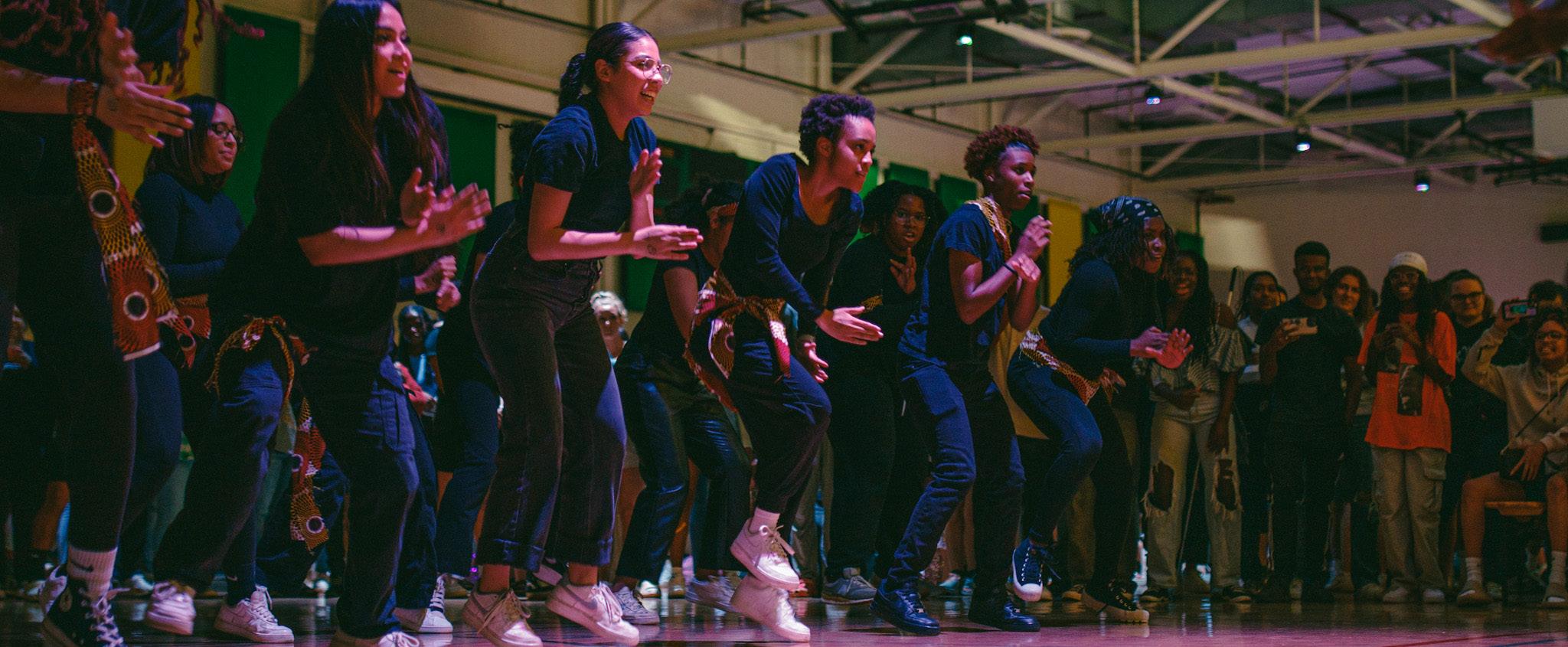
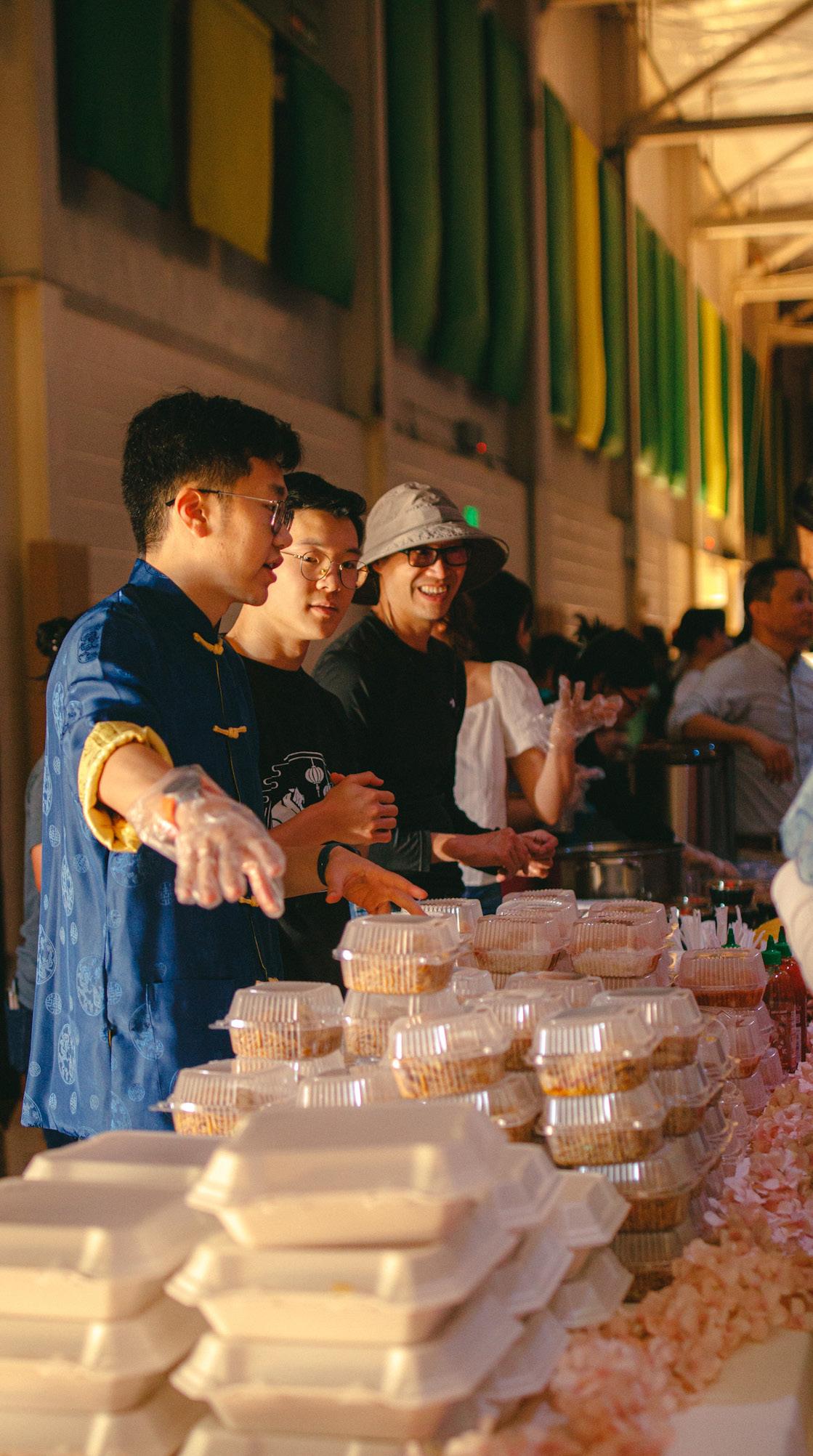

If you would like to be a contributor, contact Alana Crosby at acrosby@southern.edu NEWS 4 | Wednesday, March 22. 2023
Kapamilya members sell popular Filipino street food to customers. Sunday, March 5, 2023. (Photo by: Ron Cabacungan)
Attendees of this year’s International Food Fest ranged in age; many community and family members assisted with the preparation of food. Sunday, March 5, 2023. (Photo by: Adam De Lisser)
BCU dancers performing at this year's International Food Festival.
Sunday, March 5, 2023. (Photo by: Ron Cabacungan)
Ethan Jiao and Michael Chang sell curry, noodles and fried rice. Sunday, March 5, 2023. (Photo by: Ron Cabacungan)
(L-R) Kelly Sobrepena, Nica Ramirez and Magnolia Freitas perform a dance to "Kaneohe" by Josh Tatofi. Sunday, March 5, 2023. (Photo by: Adam De Lisser)
Atzy Lopez and Genesis Ventura serve various empanadas at their booth to attendees. Sunday, March 5, 2023. (Photo by: Adam De Lisser)
Coffee: A cautionary tale of the drug hiding in your drink
Kiana Oliver Graduate Assistant
Editor’s note: The following article is written in partnership with Counseling Services and the Southern Accent.
Do you want to hear a scary story? This story isn’t the kind that makes you peek around every corner to see if something is going to jump out at you. But it might make you rethink your choice of caffeinated beverages. According to an article published by The Guardian, a 16-year-old teenager passed away after drinking a large amount of caffeinated drinks in a short period of time. In less than two hours, Davis Allen Cripe had consumed a Mc-
Donald’s latte, a large Mountain Dew and a highly caffeinated energy drink. Sadly, Davis collapsed and was pronounced dead at the hospital. The cause of his death? According to the coroner, Davis died from a “caffeine-induced cardiac event causing a probable arrhythmia.”
Cases of caffeine-induced arrhythmia are rare. Regardless, let’s estimate how much caffeine Davis drank on that fateful day. The sizes of the drinks were unreported, but using the
Caffeine Informer website, we can see that a 16-ounce McDonald’s latte contains 142 milligrams of caffeine, and a 20ounce Mountain Dew has 90
milligrams. Depending on the brand (i.e., GFuel, Bang Energy, Monster, Rockstar etc.), energy drinks can contain between 100 to over 300 milligrams of caffeine. Compare these numbers to what the Food and Drug Administration cites as the maximum daily amount generally disassociated with negative effects: 400 milligrams (about 4 cups) of caffeine.
Even if you don’t drink a traditional cup of joe, caffeine can also be found in items such as tea, soft drinks, gums and medications.
In a 2019 study, Caroline R. Mahoney and her colleagues measured college students’ caffeine intake. The results? In a year, 92%

of college students consumed caffeine in different forms.
So what’s the point of this article? Am I using cheap scare tactics to convince my readers to quit caffeine? Yes and no. Let me explain.
Regardless of whether you support caffeine’s possible health benefits, it’s still a substance that can be misused and negatively alter your body’s functioning. For example, if you suffer from a panic disorder or anxiety, you might want to avoid that Starbucks latte. A systematic review by Lisa Klevebrant and Andreas Frick found that caffeine doses at around five cups of coffee can induce panic attacks and increase anxiety.
At the end of the day, you are responsible for your body’s health. Don’t just read this article; get out there and research for yourself! If you do suspect you’re eating or drinking too much caffeine, here are the potential health problems, according to an article published by MedlinePlus.gov:
• Restlessness and shakiness
Insomnia
• Headaches
Dizziness Increased heart rate
• Dehydration
Anxiety
• Dependency
Follow @saucounseling on Instagram!
March Madness continues with increasing mayhem
Jacob Nevis Sports Editor
It’s that time of year again when the madness starts to appear in college basketball. Each March, the NCAA men’s and women’s basketball tournaments are played between different Division 1 college teams. The tournaments run through April with each team trying to win the national championship.
There are 68 teams that qualify for the tournament, but four teams are eliminated before the tournament officially begins by playing other teams vying for a spot. This leads to
there being only 64. Those teams are separated into four brackets (South, East, Midwest and West) and seeded one through 16 based on how the teams played in the regular season.
This year, the number one seeds for the different regions were Alabama in the South, Purdue in the East, Houston in the Midwest and Kansas in the West.
The first and second rounds of the tournament were played in the cities of Des Moines, Birmingham, Orlando, Sacramento,
Albany, Columbus, Denver and Greensboro.
The tournament is called “March Madness” for a reason. Each year, something unexpected is bound to happen. One of the biggest upsets of the weekend was 16-seed Fairleigh Dickinson (FDU) knocking off oneseed Purdue. FDU is only the second 16-seed team to ever do this.
Another upset was eightseed Arkansas knocking off last year’s national champion, Kansas. Kansas was a favorite to re-
peat, but the Razorbacks were able to defeat them in a close race, 72-71.
Along with there being major upsets, there is always a Cinderella story that seems to come out of the first and second rounds. This year’s Cinderella team is the Princeton Tigers.
The Ivy League school was put as the 15th seed in the South region of the bracket.
The Tigers played two-seed Arizona and upset them 59-54.
In the second round, they beat Missouri pretty handily, 78-

63, to punch their ticket to the Sweet 16.
The first and second rounds of the tournament concluded last weekend. The tournament will resume with the Sweet 16 on Thursday, March 23, as teams try to advance to the Elite 8. Some matchups to watch out for are Alabama vs. San Diego State, Florida Atlantic vs. Tennessee and Xavier vs. Texas. The Sweet 16 will be nothing short of thrilling as March Madness continues.
Editor’s Note: Go UCLA Bruins!
MENTAL HEALTH
Along with there being major upsets, there is always a Cinderella story that seems to come out of the first and second rounds.”
(Photo sourced from: UnSplash)
“Regardless of whether you support caffeine’s possible health benefits, it’s still a substance that can be misused and negatively alter your body’s functioning.”
For more related news, visit our website at accent-southern.org 5 | Wednesday, March 22, 2023
(Photo
sourced
from: UnSplash)
SPORTS
OPINION
Getting our ducks in a row: A vindication of the duck as Southern’s mascot
Dalton Baldwin Contributor
Editor’s Note: The Accent encourages readers to respond to opinion articles with a letter to the editor. While publication is not guaranteed, we will do our best to keep open conversations and engage a wide spectrum of opinions held on campus.
When I return home for breaks, I meet up with my friends, and conversation inevitably drifts to the topic of school life. A recurring discussion within this topic has been school mascots. I viciously mock La Sierra and Walla Walla students for their dull and uninspired mascots: the eagle and the wolf. At the same time, I extoll the virtues of our fun and unique (although unofficial) duck. But now Southern threatens to follow other schools down their path of mediocrity. With the possible loss of the duck, Southern threatens to not only lose a nostalgic symbol, one embedded with history and traditions, but this issue points to a deeper-rooted one, namely an out-of-control and fiscally irresponsible Student Association (SA).
A duck is a far better mascot for Southern from a symbolic point of view. For one, bears operate in the realm of violence and bloodshed. Between 2000 and 2017, bears killed 48 people in North America. In that same time period, ducks killed zero people. Some have said that bears would be a good symbol because they are “protective of their cubs.” However, in actuality, male bears will devour their own cubs if pressed. In contrast, ducks exhibit copious amounts

of Christ-like behavior, even taking in abandoned chicks in a process called brood amalgamation. This radical love is exactly the type of behavior that Southern should want its students to display, thus making the duck an excellent mascot for our university.
But if the duck is such a great symbol, why change to a bear at all? The case for changing our mascot to a bear is purportedly due to a desire to boost school spirit, but doing so would diminish school spirit. Southern already has a plethora of traditions associated with the duck: The Duck Walk and Kevin, to name a few. We threaten to lose these with a switch to the bear. Furthermore, it would take a long time to artificially construct these traditions if we were to start from square one with a bear.
If SA would like to establish an official mascot, the duck would have a greater chance of flying with faculty. Wouldn’t it be much simpler to capitalize on this preexisting attachment to the duck?
The truth is that a duck is a more fitting choice to represent Southern while taking less resources to institute, but SA is not necessarily concerned with that. SA is given a budget and told to spend all of it if they want to see an increase in funds for the next fiscal year.
Briana Collins, the financial vice president of SA, was recently quoted in an Accent article saying, “That’s why, for Senate, we really encourage them to spend their budget on their projects. Otherwise,
RELIGION
their budget could be cut. If they’re not using the money, then we’re not gonna keep giving money.” This encourages SA to jump into unnecessary projects without fully researching or communicating them. After all, these steps would take time that SA members do not have.
As such, we have repeatedly seen incidents of SA officers being irresponsible with their money. They bought $2,000 worth of pepper spray without full
knowledge that they would be able to distribute it. They also spent $1,600 on a D1 mascot design, according to an Accent article, before communicating this change to the faculty and student body.
This isn’t to say that SA doesn’t deserve funding, but it is sickening to live under a system in which SA is encouraged to spend like there is no tomorrow, while the vast majority of students receive federal minimum wage, and each LifeGroup is only
given an annual budget of $50. Southern is an institution that deserves to have a great mascot and not to be bogged down in mediocrity with a mundane mascot like a bear, which would divert funds away from other worthy causes. The duck would be a far more representative mascot at a cheaper cost. It’s time SA starts thinking before spending. Choosing a duck as our official mascot instead of a bear is a good place to start.
Facing temptation? Remember your kids
Madison Wilcox Religion Editor
Editor’s Note: For those who are not planning on having children, this concept of the widespread consequences of sin can be applied to any individuals within your sphere of influence.

My late teenage years were difficult for me. To most people I probably didn’t seem like the typical rebellious teenager, but inwardly, I was struggling. I won’t go into details, but let’s just say I was both consciously and consistently falling to temptation, and I imagined that it wouldn’t affect anyone but myself.
I was wrong.
As the months passed, one thought kept returning to my mind: “What about your kids? Think about your kids.”
Little by little, as I thought about them, I began to see the two paths clearly — the choice to obey or the choice to fall to temptation — and with those two paths I saw the eventual results. Far in the distance, maybe thousands of days away, were two opposite outcomes. If I continued in the direction I was going, I would destroy myself. If I chose to resist and change direction, I would live.
But what was most terrifying was that my outcome did not stand alone. In my mind’s eye, I could picture my future children. There they stood, watching their mom either trust God or resist Him, either withstand temptation or fall to it. I could even see their minds being shaped by my current choices. I could imagine their sinful tendencies stemming from my failure to address my own weaknesses; I could imagine their choices taking cues from my own. Just as my physical features would be reflected by theirs, so would my
sin take miniature shape in their own hearts.
And with them, I could see their children. And their children’s children. With my outcome stood the outcome of hundreds, possibly thousands.
As much as I wished it wasn’t the case, I had to face it: I was not alone in the world. My sin was not a personal matter. It might be a private choice, but it would reap public consequences. If I spun out of control, I could throw others out of control with me. If I chose to trip down the wrong trail, who knows how many would follow? But on the other hand, if I did choose to obey, how many would I influence positively? My influence could spread equally as far in either direction.
“What about your kids? Think about your kids.”
As I remember my teenage struggles, I realize that these persistent thoughts weren’t new. Neither was my eventual decision to remain faithful. Instead, they were built upon the monumental cornerstone of a single event: the time when God Himself likely mouthed the same words, trembling as He hung upon the cross: “What about Your kids? Think about Your kids.”
Hanging there, He could see us far in the distance, hundreds of years away, watching our Redeemer either trust God or resist Him, either withstand temptation or fall to it. He could see our minds being transformed by His current choice; He could see His righteousness taking miniature shape in our own hearts. With His outcome stood the outcome of thousands, possibly millions.
So He obeyed; He hung on.
“For the joy that was set before Him, [He] endured the
cross, despising the shame, and has sat down at the right hand of the throne of God” (Hebrews 12:2). Thanks be to God.
So the next time you’re tempted, remember the faithful One who has gone before you, obeying so that you might obey. Remember, too,
the thousands of faithful ones who have followed after Him, building on that cornerstone of faithfulness. And remember your kids.
If you would like to be a contributor, contact Alana Crosby at acrosby@southern.edu 6 | Wednesday, March 22, 2023
“The
truth is that a duck is a more fitting choice to represent Southern while taking less resources to institute.” Note: This is a stock photo and in no way represents the official mascot. (Photo sourced from: Pexels)
“Just as my physical features would be reflected by theirs, so would my sin take miniature shape in their own hearts.” (Photo sourced from: Pexels)
Don’t let influencers build your wardrobe: Beware of tasteless TikTok trends
Génesis Ventura Reporter
While sorting through my closet, I found so many trendy clothing items, and I wondered why I bought them. As a college student, I have noticed that the media has influenced what I shop for. One of the main platforms that is powerfully influential when it comes to fashion trends is Tiktok.

In an article in Industry Fashion, Sophie Smith explains, “Fashion trends dominate TikTok’s fashion content. These appear on a user’s FYP (for you page) and can feature anything from a clothing haul to styling inspiration. TikTok



provides an accessible platform for creators, which is why these fashion trends and the products included often go viral.”
One of the main trends Smith said is seen on TikTok is called “TikTok made me buy it.” Because these paid advertisements can increase both brand exposure and revenue, influencer relationships are a popular marketing approach for fashion firms on the network.


Many of the influencers have paid partnerships with brands to promote their fashion pieces. Because some of these in-
fluencers are paid to promote fashion pieces, the consumer is not completely sure if the influencer genuinely likes the fashion piece that is being promoted. Consumers often purchase trendy pieces that may be worn for the time the clothing item or accessory is popular. One of the trendy pieces that I was influenced to buy and now regret spending money on are the patchwork block jeans that were very trendy at the beginning of the pandemic.
Although it may seem counterintuitive, avoiding trends can actually improve your style,

according to an article in Society19 by Madeline Murphy. She explains, “By not following every internet trend, you can also experiment with your own fashion creativity. Instead of seeing a photo of a feathery matching set on Instagram and purchasing a replication, you can actively create your own outfit. Getting fashion inspiration from others is natural, but not following trends may force you to experiment and challenge yourself.”
Murphy emphasizes that by their very nature, trends don’t last. The patterns that we see
today may return decades from now, but eventually, they will be considered outdated. Though being influenced by the media is bound to happen sometimes, not letting those trends sway your style and who you are is very important. I noticed that trying to follow fashion trends impacted how I view myself in clothes. I did not like what I was wearing because it was not me;, it was what the media was influencing me to wear. Once I established my own style, I noticed that I had a more creative outlook toward the
“The patterns that we see today may return decades from now, but eventually, they will be considered outdated.” (Photos sourced from: UnSplash)
Dear Kevin: What are some good books to read that will help me succeed in college and beyond?

Dear Reader:
What a lovely question. Here are my top picks for books that will help you through your college experience. Although some of these books are in the self-help category, I think it is important to remind the reader that a wide range of genres are the key to broadening one’s understanding of themselves and others. Partaking in a variety of critically acclaimed literature will stretch the mind and worldview and ultimately contribute to one’s success. However, I digress. As promised, here is my compilation of a few favorites.
“The Seven Habits of Highly Effective People” by Stephen Covey This is an incredibly helpful must-read that will teach you crucial life skills. Not only does the book give practical and applicable principles for professional life, it also delves into the personal habits to maintain a healthy mindset.
“Life Beyond College: Everything They Didn’t Teach You About Your First 10 Years After Graduation” by Kevin Coyne This delightfully informative book is crammed with wisdom for the floundering young adult. This book helps new graduates avoid common mistakes in financial, legal and personal areas of their lives.
“Digital Minimalism: Choosing a Focused Life in a Noisy World” by Cal Newport In an age when social media has taken over, this book is a guide for those who wish to reclaim their peace.
“The Little Engine That Could” by Watty Piper Do not scoff at the wisdom in children’s books. Reader’s Digest lists the timeless lessons in this classic as “positivity, hard work, helping others, self-confidence and perseverance,” all of which are essential elements to succeeding in college and beyond.
“Prayer: Does It Make Any Difference?” by Philip Yancey This book may not seem like an obvious choice for a self help book list, but I think it warrants a place here. Yancey thoughtfully addresses so many of the doubts connected with prayer. As someone who struggled with those doubts himself, he is able to shed a refreshing perspective on prayer and the difference it makes in our lives.
When in doubt, follow the “rule of fours,” a reading plan developed by Joseph Luzzi, a professor at Bard College. Four days a week, 45 minutes a day, four different books.
1. Your favorite genre of litera ture.
2. Contemporary literature.
3. Nonfiction.
4. A classic literary work.

For more related news, visit our website at southern-accent.org 7 | Wednesday, March 22, 2023
LIFESTYLE
#SAUlife This week’s winner is Annaliese Haugen. Come pick up your prize at the Student Development Office.
a chance to be featured, use or tag @sauaccent on Instagram in your posts!
For
SOCIAL dainochoa old socks and peace signs ✌️ katelynn_rw will forever and always be a flower & garden girl ��”
D
jalee_beee11 allysonlboyce coming soon to the outdoors near you: allergy season ���� happy March !!
hannah.noelle17 Create a little sunshine in the midst of a rainy day ��️ itspriscillem keep smiling because life is a beautiful thing and there’s so much to smile about :)
H
Knowing that students love fast food, Kevin will be offering a DM us on Instagram with a photo of where Kevin is hiding! J A $10 Taco Bell Gift Card!
Dear Kevin
Dain Ochoa Katelynn Webster
K
Julie Roy Allyson Boyce
Hannah Guenin Priscille
Mikala
P
Today — 22
General Recitals, Ackerman
Weekly Birthdays
TODAY
Thursday — 23
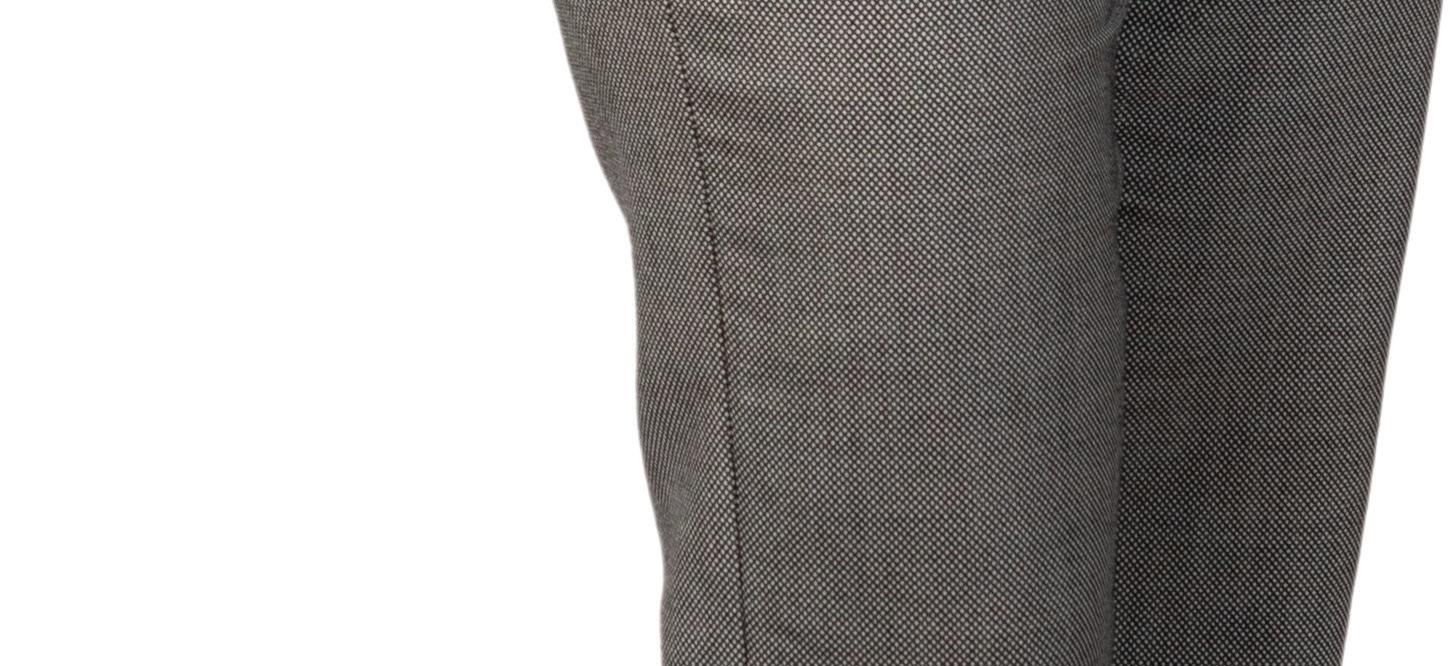
Last day to drop a class “W” on transcript (16 week class(es)) Spring Preview Southern (23-24)


11:00 a.m. Convocation: Hasel Lectureship, Paul House, Collegedale Church

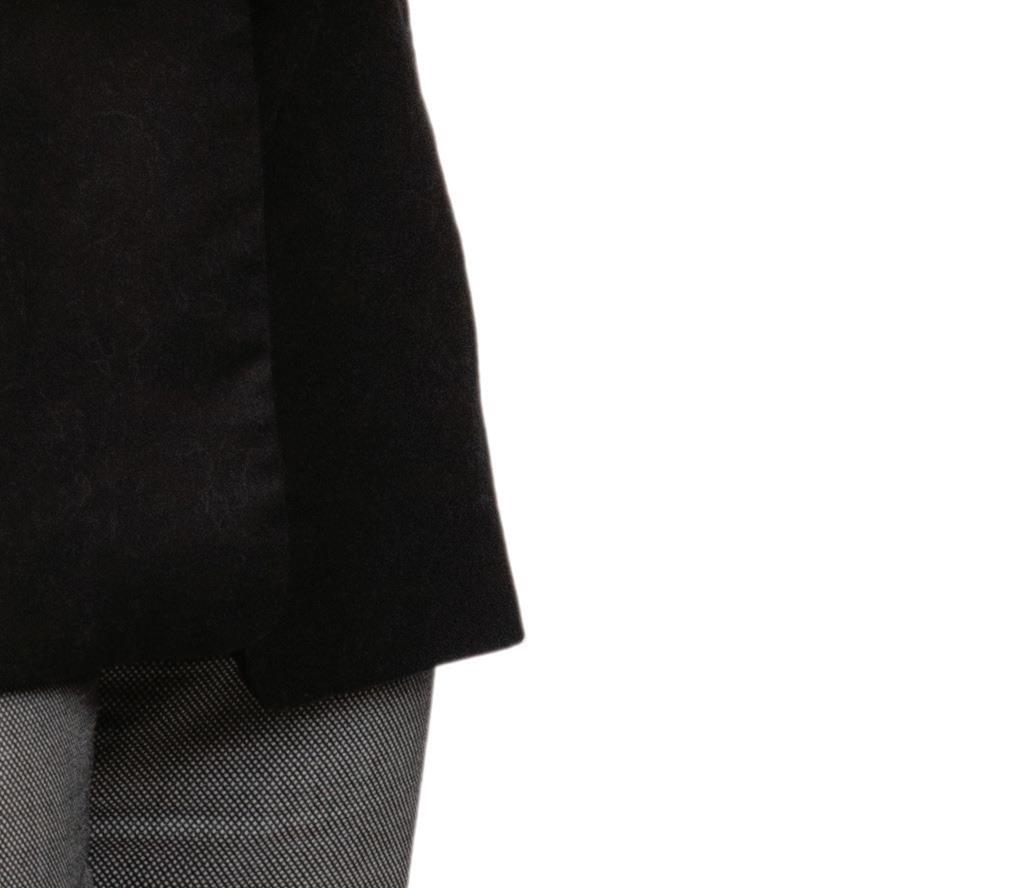

Friday — 24
p.m. SA Senate, Bietz Center Payday: Hourly/Student Badminton/Singles Tennis/Pickleball Signups begin
p.m. Vespers, Joseph Khabbaz, Collegedale Church
p.m. Afterglow, South Atrium of Collegedale Church
Sunday — 26
Exit Exams (27-31)

a.m. Senior Exit Exam, Bietze Center
p.m. Psi Chi Induction, Lynn Wood
Chapel 6:00 p.m. Sigma Tau Delta Banquet, Presidential Banquet Room
Tuesday — 7
8:00 p.m. Performing Arts: National Geographic, Maureen Beck, Iles PE Center
Saturday — 25
9:00 a.m. Adoration Worship, Collegedale Church 9:00
SA Announcements
If you would like to run a booth for 423 Night, sign up using the link on the SA Instagram. Don’t miss out on this entrepreneurial opportunity!
Monday — 27
MASTER’S DEGREE IN SOCIAL WORK Facilitate Positive Change
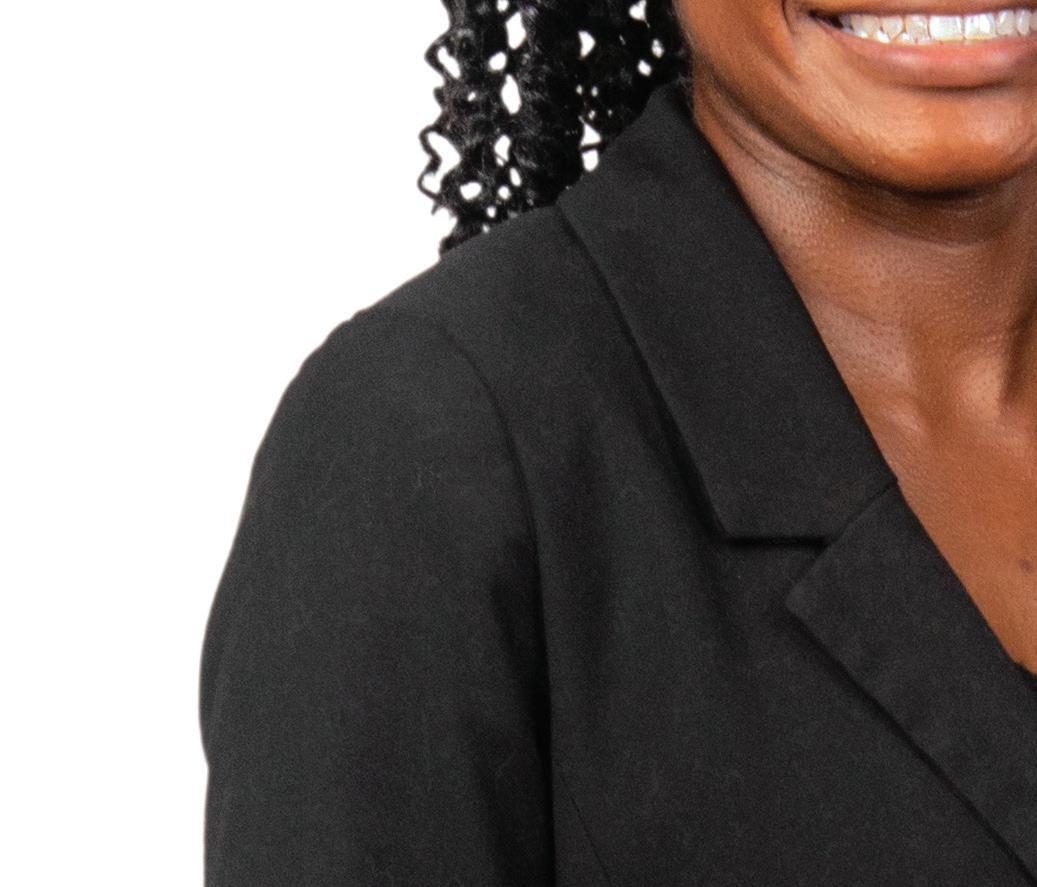
in People’s Lives
Southern’s Master of Social Work program prepares you for excellent service and leadership positions.
It works
Our evidence-based program equips you with effective intervention tools.
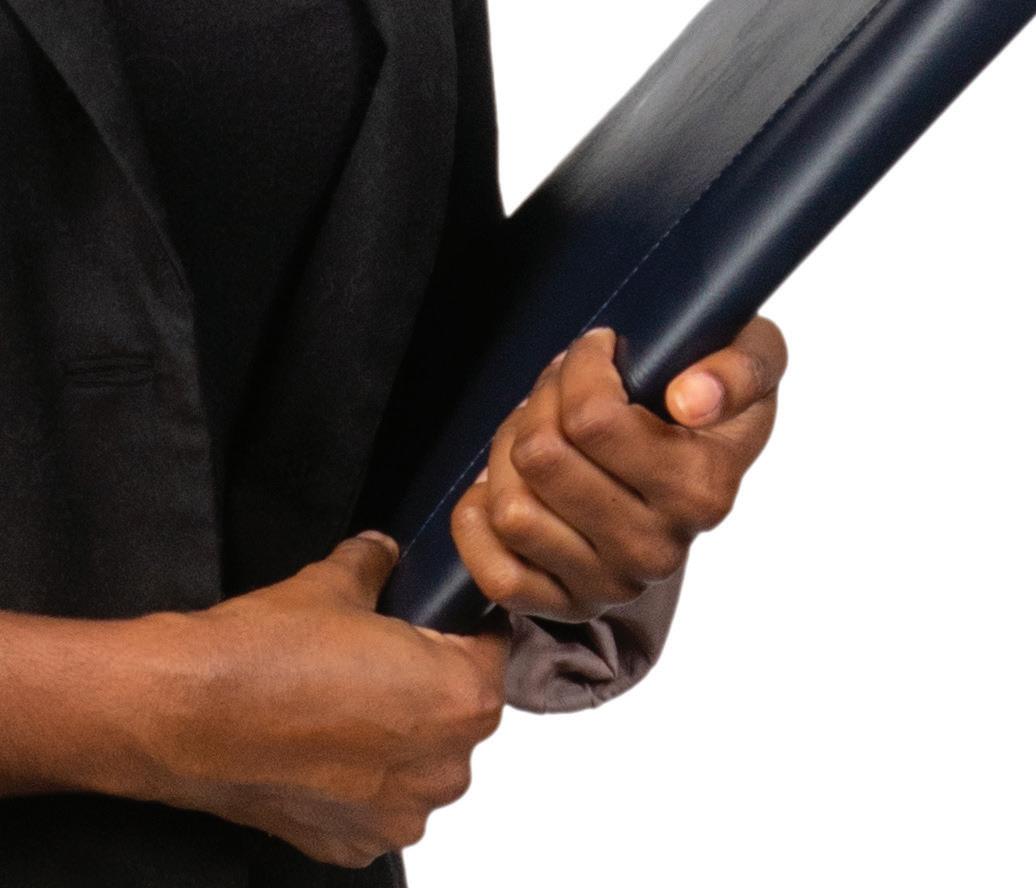
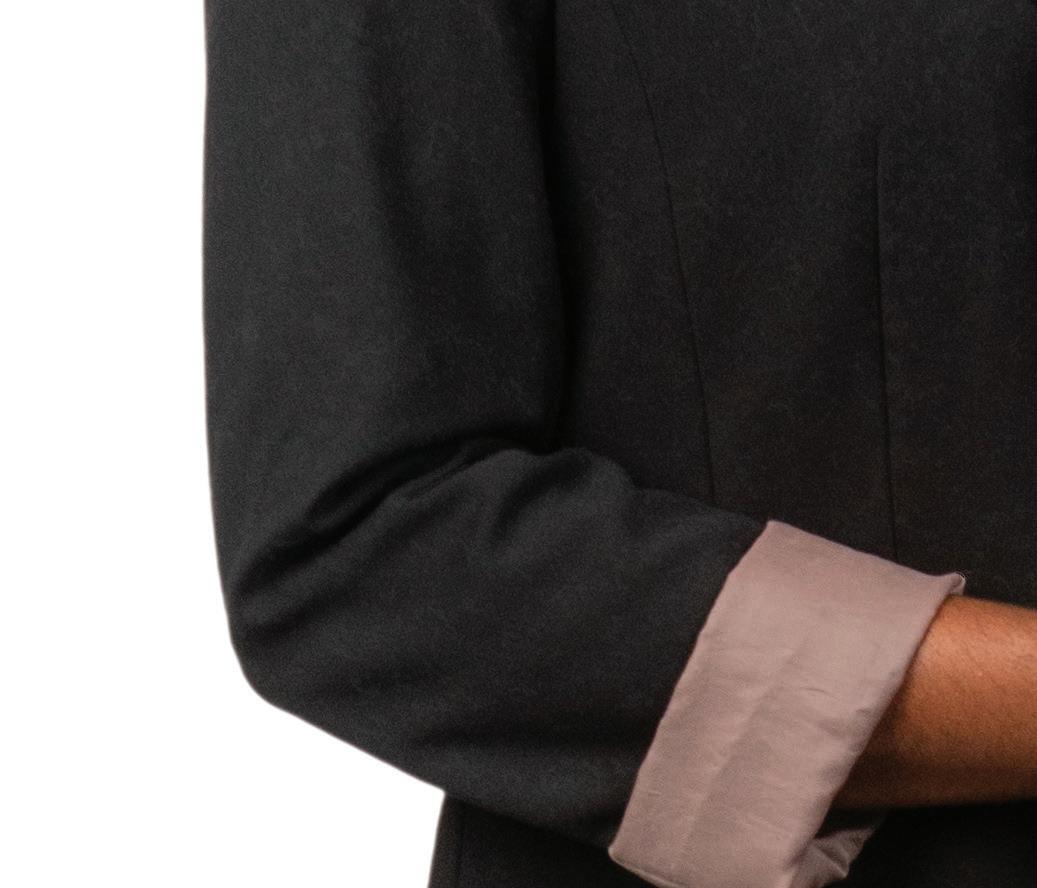
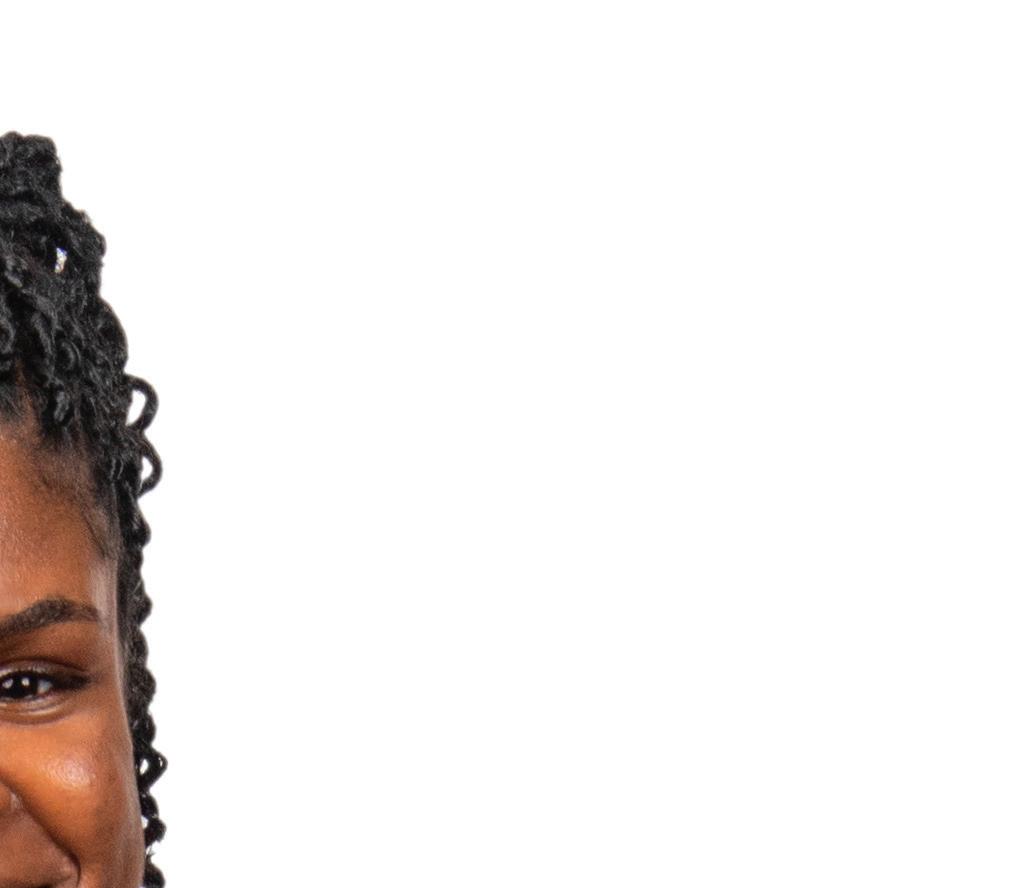
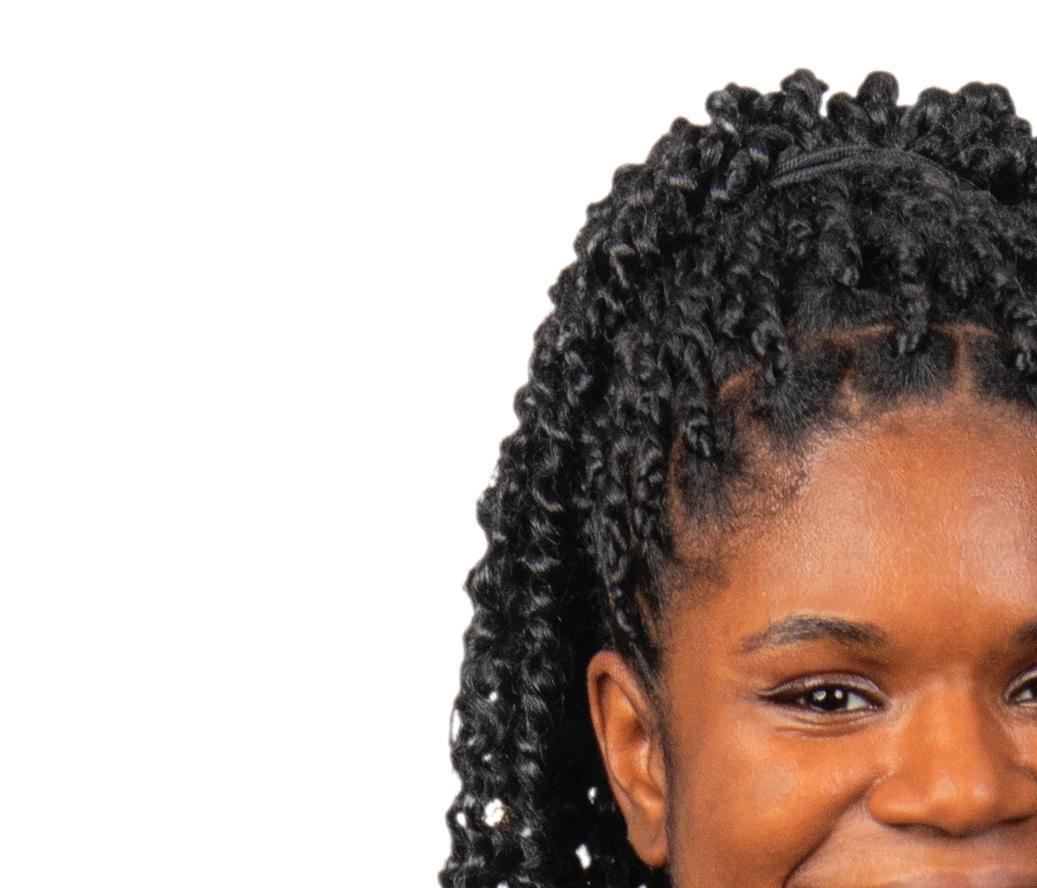
It’s convenient
Classes meet all day Sunday, twice a month. With careful planning, you can complete a bachelor’s degree AND a master’s degree in five years!
You’ll be ready
Our approach is competency based. That means you get hands-on skills and experience in social work practice while you’re in school.
Master of Social Work
With a multi-disciplinary approach and a variety of concentrations, an MSW from Southern prepares you to serve a wide variety of people in need.
If you would like to be a contributor, contact Alana Crosby at acrosby@southern.edu 8 | Wednesday, March 22, 2023
Kaitlyn
Je Brett Klasing Emily Mayfield
Nelson Sydney Nelson Nica Cyrea Ramirez
Ronto
Thibaudeau
|23 Alberto Balio
L. McNorton
Mikottis
Moretta Calvin Nesmith
Stokes
|24 Shelby Brautigan
Darnell
Disla Alex Lamarre Damian Martinez Ethan Smith Christopher Viar Melinda Widdicombe Faith Workman Saturday |25 Lisa A. Campbell Aubrey Christian Caitlin Cordero Ethan Dee Carissa Djami Kevin Djami Breanna Ermshar Sabrina Fernandez Jordan Lemon Haley Shuman Sunday |26 Bill Bremner Sabrina Galindo Anna Hunt Kristen Page Madison Wilcox Morgan Wilcox Monday |27 Greyson Abraham Sukonya Adams Dean Alamo Rachel Baraks Brandon Familia Michael Gusky Elijah Oyoyo Golda Ruckle Brad Stern Alyssa Wolf Juliana Wolf Matthew Wolff Tuesday |28 Lilyann Adams Terry Bokombe Bokefele Jessica Galdamez Maravilla Sarah Han Jesse C. Hoffman Nahomy Santana Abby Segovia-Santos
65-52 79-62 71-47 71-51 79-60 74-57 67-44
|22 Robert Allan
Delong David Fagre Youngbin
Andie
Tyler
Elizabeth
Thursday
Chad
Rachel
Arianna
Tryg
Friday
Heather
Rosela
CHATTER
1.800.SOUTHERN • southern.edu/graduatestudies 5:00
Soccer Captain’s
Hulsey
7:30 p.m.
Auditorium 8:00
7:30
8:45
Senior
2:00
p.m.
Meeting,
Amphitheater
7:55 p.m. Sunset
9:30
3rd Floor
a.m. Connect Worship, CA Elementary School Gym 11:45 a.m. Merge Worship, Lynn Wood Chapel 11:45 a.m. Renewal Worship, Collegedale Church 7:00 p.m. Evensong, Collegedale Church 9:00 p.m. SA Talent Show, Iles PE Center Online Registration for S23 begins Soccer begins 12:00 p.m. General Cultural Conversation 4:00 p.m. University Assembly 6:50 p.m. E.A. Anderson Lecture Series, Brock 3205 May Graduate deadline to finish incompletes & home study correspondence 12:00 p.m. Deep Dive Cultural Conversations 12:00 p.m. Tornado Test Siren 7:30 p.m. Performing Arts: Saxophone, Steven Banks, Wood - Ackerman Auditorium Check out our website! www.southern-accent.org
 Amanda Blake Managing Editor
Amanda Blake Managing Editor







 Jahsoulay W. Walton Staff Writer
Jahsoulay W. Walton Staff Writer
 Elsie Pak Collegedale News Editor
Elsie Pak Collegedale News Editor































